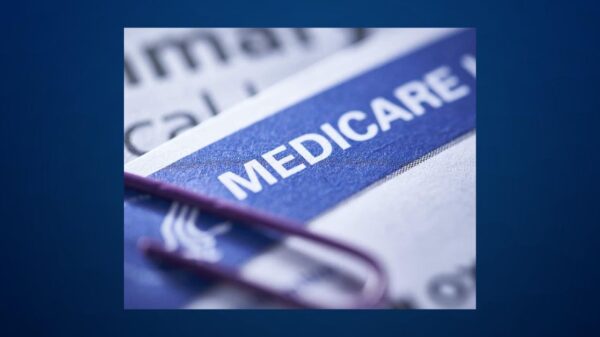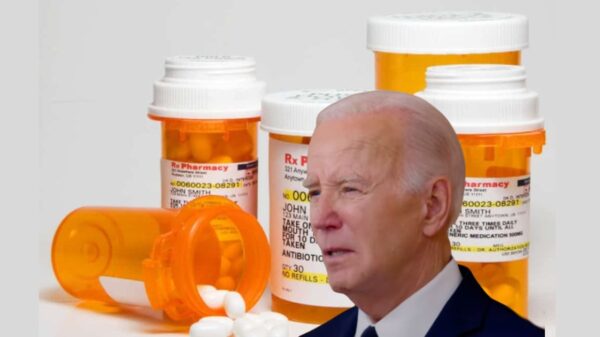With hurricane season starting this week, at the end of last week, U.S. Sen. Marco Rubio, R-Fla., sent a letter to President Joe Biden “request[ing] that the administration conduct a thorough review of all existing federal regulations that can be relaxed to yield more effective and well-organized hurricane relief and response efforts.”
Hurricane season began on June 1 and ends November 30.
Rubio’s letter to Biden is below.
Dear Mr. President:
As the official start to the 2021 Atlantic Hurricane Season on June 1st approaches, I write to request that the administration conduct a thorough review of all existing federal regulations that can be relaxed to yield more effective and well-organized hurricane relief and response efforts. The 2020 Atlantic Hurricane Season saw 30 named storms, 14 hurricanes, and seven major hurricanes. The Federal Emergency Management Agency’s efforts to combat the COVID-19 pandemic, combined with their efforts to address the crisis on the southern border, and an active year of natural disasters present challenges to workforce readiness and disaster relief efforts. We must focus on addressing continuing bureaucratic inefficiencies to ensure a more robust federal response for the next disaster, particularly as the State of Florida returns to normalcy while simultaneously preparing for the 2021 hurricane season. Streamlined efforts across the federal government are of critical importance to the success and timeliness of disaster response, especially at this unique moment.
For too many Americans, the disaster recovery process is needlessly complex and disjointed, and the challenges related to the COVID-19 pandemic only make the process more difficult and harder to navigate. I urge you to work to cut unnecessary and duplicative regulations, which disadvantage communities and individuals recovering from natural disasters. Burdensome rules may impede rebuilding and recovery in the aftermath of natural disasters. Individuals, businesses, local governments, and nonprofit organizations in Florida must be free to focus on safe preparations and post-recovery activities without bearing the burden of arduous federal regulations that may inadvertently amplify obstacles to recovery.
In times of disaster, Americans come together to overcome daunting challenges to rebuild and recover. A thoughtful assessment and revision of bureaucratic mandates that impede disaster recovery efforts is necessary to address victims’ health and safety needs effectively. Some examples include, but are not limited to, the following:
The Department of Health and Human Services (HHS) must improve coordination with the Department of Homeland Security (DHS) and the Department of Defense (DoD) when a major disaster declaration is issued, and use its authorities to the maximum extent possible to efficiently provide aid to persons and populations in need.
The DoD should use existing authorities to rapidly repair damage to installations that are regularly impacted by natural disasters, and create a list of installations that are more prone to being threatened or damaged by natural disasters.
The Department of Veterans Affairs (VA) should move to ensure that veterans living in rural areas, such as the Florida Panhandle and the Florida Keys, have a full suite of medical service options available to them in their own communities as roads and highways are impacted by debris, flooding, traffic, and emergency response activities.
The Federal Aviation Administration (FAA) should explore disaster policies whereby drone regulations can be temporarily and safely lifted during disaster declarations to facilitate emergency relief efforts, such as helping victims obtain medications when the roads to their homes are blocked.
The Department of Housing and Urban Development (HUD) should ensure that there are sufficient protections in place for residents of HUD-assisted properties to prevent them from being forced back into living conditions that may have been made unsafe and unsanitary following a disaster.
The Department of Labor (DOL) should look to provide more flexibility to ensure that business reporting requirements do not paralyze businesses and workers whose most immediate priority should be providing assistance.
The Internal Revenue Service (IRS) should expediently delay filing deadlines when necessary and consider rule reforms that enable disaster victims to make penalty-free early withdrawals from 401(k) and other retirement accounts.
I respectfully request that your administration work directly with my office and the State of Florida to ease any other regulatory burdens associated with federal disaster relief and recovery that may require Congressional assistance.
Thank you for your prompt attention and consideration on behalf of Floridians and all Americans that may be impacted during this year’s hurricane season.























